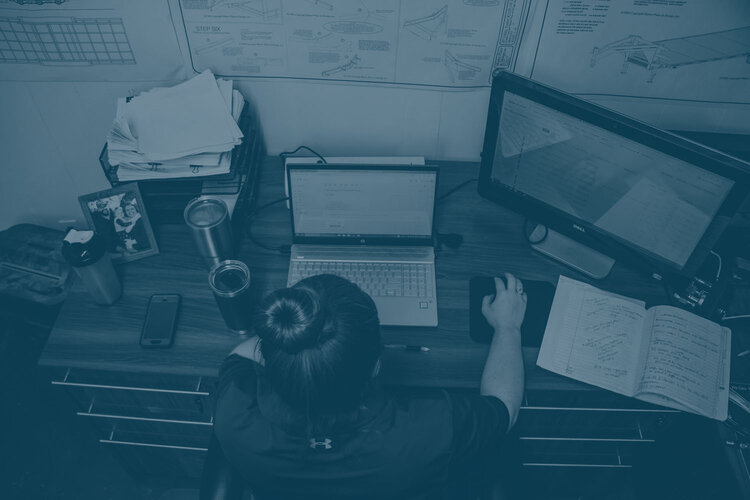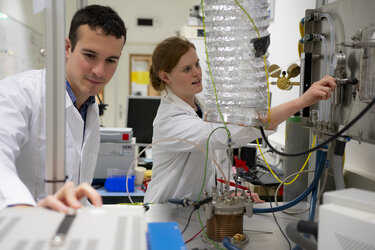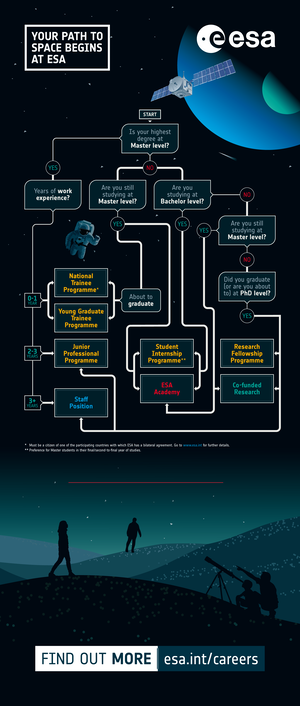Research Fellowships in Space Science: call for applications!
ESA's postdoctoral Research Fellowship Programme offers early-career scientists and engineers the possibility to carry out innovative research in a variety of disciplines related to space science, space applications or space technology. If you are ready to launch your research with ESA, this is an opportunity not to be missed!
Research Fellowships in Space Science specifically offer the opportunity to contribute to ESA's endeavour to explore our Solar System and the Universe in the fields of heliophysics, planetary science, astrophysics and fundamental physics. These fellowships provide a unique opportunity to work with scientists and engineers at the forefront of space science and experience first-hand how ESA works with communities across the Member States to maximise the scientific return from our missions. The Space Science fellowships can be taken in Spain (ESAC), the Netherlands (ESTEC) or Baltimore in the US (STScI) and we encourage applicants to choose a site that allows for best local collaborations.
Who can apply?
To be eligible for the Research Fellowship Programme you must:
- Have recently completed or be close to completing a PhD in a relevant technical or scientific discipline. Preference is given to applications submitted by candidates within five years of receiving their PhD.
- Be a citizen of one of the ESA Member States, European Cooperating States, or from Latvia , Lithuania, Slovakia or Slovenia as Associate Member States or Canada as a Cooperating State.
How to apply?
- Find full details of the fellowship and begin your application via the vacancy notice on our recruitment site
- Register and create your candidate profile
- Submit your CV, motivation letter and your research proposal (which should be no more than four pages long)
All applications received are carefully evaluated and all applicants are notified of the outcome of their application, whether they are invited to the interview stage or not. You can track the status of your application by logging into your candidate profile. So long as you have not been notified by ESA, your application remains active.
Applications for ESA Research Fellowships in Space Science open once per year and the deadline to apply for this year’s selection is Monday 18 September.
Other ESA Research Fellowship opportunities are published throughout the year.
What to expect from an ESA Research Fellowship
1. Hear from alumni
If you are curious to know more about the programme, who better to tell you about it than its alumni? We invited former ESA Space Science Research Fellows to share their experience at ESA and how their career paths have unfolded since then. You can find all the interviews below – take a look and get inspired!

Japheth Yates
During his time as an ESA research fellow, Japheth Yates worked on the coupling between Jupiter's upper atmosphere (thermosphere and ionosphere), its magnetosphere and the solar wind. Japheth is now a lead computational engineer at Arrival, an electric vehicle startup.
Read his interview here.

Catarina Alves de Oliveira
Catarina Alves de Oliveira worked on data from ESA’s Herschel mission during her fellowship. When we spoke to Catarina, she was working as a Science Operations Development Manager at ESA, where she was responsible for the teams designing and implementing ESA's contributions to the science operations of two upcoming missions: Ariel and SMILE. Since then, she has gone on to assume the role of Head of the Science Operations Development Division.
Read her interview here.

Christiane Helling
While at ESA, Christiane Helling worked on modelling cloud formation in brown dwarf atmospheres, in particular on the effect of turbulence on the cloud formation processes. Christiane is currently Director of the Space Research Institute of the Austrian Academy of Sciences and holds a university professorship for space research at the Graz University of Technology.
Read her interview here.

Ágnes Kóspál
During her fellowship, Ágnes Kóspál, who works on young stars and debris disks, was part the Gould Belt survey with ESA’s Herschel mission. She is now an ERC grantee and a Research Advisor, leading a research group at the Konkoly Observatory in Budapest, Hungary.
Read her interview here.

Tra-Mi Ho
While at ESA, Tra-Mi Ho worked on small body research (observation of comets, data analysis and interpretation) and she supported the ROSETTA Science Operation Team. Tra-Mi Ho is currently Head of the Department of System Engineering and Project Office at the German Aerospace Center (DLR).
Read her interview here.
2. Hear from current Research Fellows
ESA selected 12 fellows to pursue their own independent research in space science in 2023. Their research covers a broad range of topics, including the origin of nature’s most powerful explosions, the composition of the exospheres of Jupiter’s moons, Europa and Ganymede, and the processes governing the heating of the solar corona. Learn more about these fellows and their research here.

Life at ESA
ESA is proud to offer its employees a stimulating and inspiring work environment that is complemented by myriad on-site services and facilities that make their ESA experience outside of work equally as rewarding.

ESA recruits
If you are interested in working for ESA but this particular programme is not suited to you, there are many other ways to join us. Throughout this year, over 300 ESA vacancies are being published for a wide range of roles across our establishments as we expand our team of talented professionals. Click here to find out if you have the kind of profile that we are looking for. And if you are still studying or at the beginning of your career, one of our entry-level programmes could be the perfect launch-pad for your career in space.







